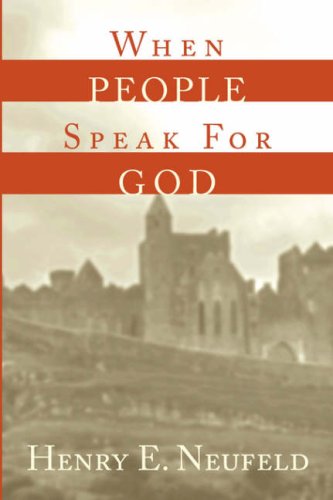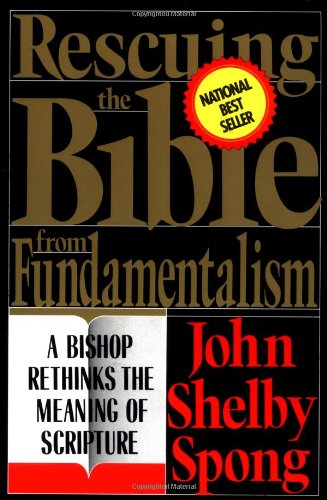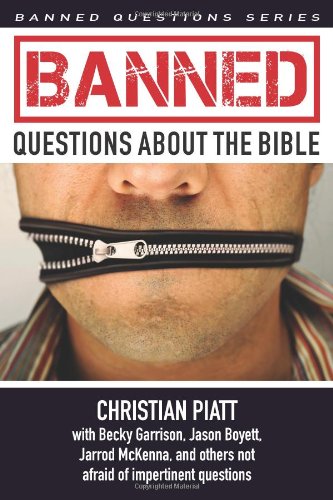Daniel 8:9-11, Typological Fulfillment
Out of one of them came another horn, which started small but grew in power to the south and to the east and toward the Beautiful Land. It grew until it reached the host of the heavens, and it threw some of the starry host down to the earth and trampled on them. It set itself up to be as great as the Prince of the host; it took away the daily sacrifice from him, and the place of his sanctuary was brought low.
//When Isaiah prophesied that a child would be born of “a young maiden” (the Septuagint version reads “a virgin”), he probably had in mind the birth of either his own son or that of King Ahaz. When you read the verse in context, the immediacy of the prophecy is very clear. Isaiah did not have Jesus in mind, and if Isaiah’s prophecy was fulfilled at all, then it was fully fulfilled in his own time.
Matthew, however, when he references Isaiah’s prophecy, may have considered this a typological fulfillment. It strains the imagination to think that Matthew didn’t know Isaiah’s prophecy had been fulfilled long ago, so we must assume Matthew meant its second fulfillment to be typological. The son of the King, in Isaiah, becomes a “type” of the birth of Jesus. The question readers must answer for themselves is this: Do you accept typological fulfillment as true prophecy?
Today’s verse is another example, of primary importance to today’s time. Without getting too deeply into the discussion, Daniel prophesied a conqueror, and this prophecy was fully fulfilled in the 2nd century BC. The name of the conqueror was Antiochus IV. John of Patmos then later picked up on Daniel’s prophecy and applied it to the conqueror of his time: Nero Caesar. Nearly all scholars of Revelation recognize Nero Caesar as the Beast of the Sea in Revelation. John’s prophecy, if taken seriously, must also be considered a typology; Daniel had no intention of prophesying an event in the first century.
But if typological fulfillment is legitimate, how, then, are we to know when a prophecy is fulfilled in its final expectation? I guess we don’t, really. As regards Daniel’s prophecy of a conqueror, Preterists stop at the first century, and conclude that Nero Caesar, and the great war of 67-70 A.D., is the final typological fulfillment of his scripture. It’s written about in Revelation. However, most Christians take the futurist view, and conclude that the prophecy of Daniel will be fulfilled yet a third time; that it will all happen again in our future, at Armageddon. Daniel had no idea his prophecy regarding the 2nd century B.C. would be read in this manner; John had no idea his prophecy regarding the 1st century A.D. would be read in this manner; yet both events were laying down a typological foundation for an antichrist and a great war yet to come.
The flexibility of scriptural fulfillment, and the way the New Testament has taught us to think typologically, means there will always be argument about when prophecies are fulfilled. What makes us think, for example, that the next antichrist will be the final one? In my opinion, the great debate between Preterists and Futurists about whether Christ is coming again may as well be put to bed. Neither are referringto the original scriptural fulfillment of Daniel, so both are arbitrarily choosing a particular point in time to end the cycle of repeating typological fulfillments.
Book review: Gospel Fictions
by Randel Helms
★★★★
Helms begins his book by claiming that he writes as a literary critic of the four Gospels, not as a debunker … then he proceeds with a thorough debunking.
This is a good mix of original ideas and established scholarship. Helms’ message is clear: that the Gospels are artful, fictional variations of a common theme, individualized by each author’s motives. He treats separately the birth narratives, miracles, passion story, and resurrection appearances, showing how each is often related to the Old Testament in order to lend artificial authority, or derived from pagan myths or contemporary miracle claims.
I found the book thought-provoking, though a little disturbing in tone. It’s short, not meant to be an in-depth study. Recommended as a starting point for research in the development of the Gospels.

Luke 12:47-48, The Punishment Fits the Crime
That servant who knows his master’s will and does not get ready or does not do what his master wants will be beaten with many blows. But the one who does not know and does things deserving punishment will be beaten with few blows.
//Ignoring for now the Catholic doctrine of purgatory, traditional Christian teaching insists that all men who reject Jesus will suffer identically; that is, they will endure eternal torture together in the same hell. Mass murderers suffer the same torment as unbelievers. Have you ever wondered how a merciful God could possibly judge this way?
Perhaps Hell isn’t eternal; maybe the punishment fits the crime. Here are some verses that may give you pause:
But I tell you, it will be more bearable for Tyre and Sidon on the day of judgment than for you. –Matthew 11:22
But woe to that man who betrays the Son of Man! It would be better for him if he had not been born.” –Mark 14:21
They devour widows’ houses and for a show make lengthy prayers. Such men will be punished most severely.” – Luke 20:47, see also Mark 12:40
God “will give to each person according to what he has done.” –Romans 2:6, see also Psalms 62:12 and Proverbs 24:12
How much more severely do you think a man deserves to be punished who has trampled the Son of God under foot, who has treated as an unholy thing the blood of the covenant that sanctified him, and who has insulted the Spirit of grace? –Hebrews 10:29
Book review: The Complete Idiot’s Guide to Near-Death Experiences
by P.M.H. Atwater with David H. Morgan
★★★★★
I promised to work on a couple more books about the afterlife, and wanted to include this one. I went through a period a while back where I grew fascinated by studies of life after death, and delved into a number of different approaches to the topic. Scientific studies, though woefully inadequate to date, make for fascinating reading. I think we’re just wired that way.
I read about hauntings, claims of reincarnation, visits to heaven and hell, séances, and just general paranormal events. (My computer just changed my misspelling of “paranormal” to “paranoia;” a reasonable faux pas.) More unproven than scientific, these books nevertheless kept me entertained. There is, however, one subtopic that stands head-and-shoulders above the rest, as worthy of further study.
That’s near-death experiences (NDE’s). But it’s still difficult to locate an unbiased treatment. So biased are both the believers and the debunkers that it’s quite a challenge to sort out what’s legitimate and what’s not.
This Idiot’s Guide proved to be a well-balanced introduction. It provides not only accounts of various NDEs, but science’s response. Then, the debunkers are debunked, and finally the religious get their say on the matter too. (NDE’s do not always support our religious beliefs; in fact, the stories of NDE’s tend to irritate exclusivists who can’t stomach the idea that non-believers share the same often-glorious experiences.)
Recommended.
PLEASE NOTE: The author has contacted me to explain that this book has been out of print for some time, and that it was replaced by what she considers a much better publication: The Big Book of Near Death Experiences.

2 Kings 3:26-27, Human sacrifice really works!
When the king of Moab saw that the battle had gone against him, he took with him seven hundred swordsmen to break through to the king of Edom, but they failed. Then he took his firstborn son, who was to succeed him as king, and offered him as a sacrifice on the city wall. The fury against Israel was great; they withdrew and returned to their own land.
//A bit of context: King “Jumping Jehoshaphat” asks Elisha the prophet whether or not he will be victorious in a battle against Moab. Elisha calls for a harpist (music seems to aid his visionary abilities) and while the music is playing God speaks to Elisha, promising victory. So the battle begins, in which Moab is at first routed. But then Moab turns the tables with a surprising counterstrike.
Many of my blog post ideas derive from the books I review. This idea comes from David Plotz’s Good Book, and Plotz is such a fun writer that I’d feel silly paraphrasing him. I’m going to invoke my privilege as a book reviewer, and just quote Good Book:
“The besieged Moabite king, on the verge of defeat, sacrifices his firstborn son as a burnt offering in plain sight of the Israelites. This turns the tide of the battle, and the Israelites flee. The theology here befuddles me. If the Moabite made his child a sacrifice to his own god, not the Lord, then it shouldn’t have helped, since rival gods are presumably impotent. If the Moabite king made the sacrifice to the Lord, that shouldn’t have helped either, because the Lord has made it very clear that he loathes child sacrifice. The only theory that makes sense is that the child sacrifice did not work theologically, but did work strategically. It scares the heck out of the Israelites, who figure: If he’ll do that to his own son, can you imagine what he’d do to us?”
David’s book: http://www.dubiousdisciple.com/2011/06/book-review-good-book.html
Book review: When People Speak for God
by Henry E. Neufeld
★★★★
Before beginning this review, I think it would be helpful to introduce Henry Neufeld and the flavor of his writings. I always wonder when I do this whether the author will be coming after me with a shotgun, because they may not be aware of the aura they give off, and may take exception to my description. But here goes.
Henry is what I would call a practical believer. You’ll find no hint of fanaticism or arrogance in his writings. He’s apparently done his stint with atheism, and found Christian beliefs to be more practical. While Henry is very educated in Biblical Languages and Biblical studies, and while he’s happy to share the Christian beliefs he’s developed, his writing is friendly and easy to read because he makes no attempt to foist his beliefs on his readers. I get the feeling he feels that would be unchristian. He makes a point of explaining that although his books address Christians because that’s his own “faith group,” others may worship God in alternative ways. He humbly quotes Hebrews 10:19 as instruction not to try to get people to think like him, but to encourage them listen to God for themselves.
Henry was raised a Seventh Day Adventist, and though he no longer shares their beliefs, this reliance upon the authority of Ellen White has contributed to his interest in current-day prophecy. Enter this book, When People Speak For God. It begins with a discussion of how we hear God speaking, which I confess has always seemed a bit pointless to me; those who cannot hear God will forever scoff regardless of the explanation, and those who can need no explanation.
Now, if God speaks directly to us, just like he spoke to the authors of the Bible, then he surely speaks to our acquaintances as well. Suppose someone says to you, “I have been praying about this for weeks, and this morning God spoke to me and told me what he wants us to do.” Awkward silence, right? We squirm, wondering if we should capitulate. After all, who can argue against God?
What to do? God’s command is to question the true source, and Henry provides us with five scriptural instructions for proper discernment. More than this, Henry believes we have every right to question the Bible’s authority as well. Can we trust the development of the canon (those books considered “inspired” and thus selected for our Bible)? Can we read every word in the Bible as God-breathed? As inerrant? A discussion of inerrancy follows, and how Henry’s recognition of the Bible’s imperfections has not disturbed his reverence for God’s Word. There is no way to prove the Bible’s inerrancy anyway, because there is simply no way to measure its accuracy unless it’s by comparing it against another already accepted standard, and the “errant” sources we do have (scientific and archaeological study) unfortunately do not tend to support the Bible’s inerrancy.
We are left with the conclusion that recognizing the authority of any written or spoken word is an individual exercise. We must measure the words against our personal experience with God, and the spirit we find therein.

Revelation 6:12-14, The End of the World?
I watched as he opened the sixth seal. There was a great earthquake. The sun turned black like sackcloth made of goat hair, the whole moon turned blood red, and the stars in the sky fell to earth, as late figs drop from a fig tree when shaken by a strong wind. The sky receded like a scroll, rolling up, and every mountain and island was removed from its place.
//A number of Revelation interpreters continue to read these verses literally. Please don’t. Such images may seem bizarre to us today, but they had grown into common symbolism long before Revelation appeared. They denote the wrapping up of a nation, such as Babylon (as told by Isaiah) and Egypt (by Ezekiel). For example, Isaiah 34:4 reads, “All the stars of the heavens will be dissolved and the sky rolled up like a scroll; all the starry host will fall like withered leaves from the vine, like shriveled figs from the fig tree,” and this has nothing to do with the end of the world. If you doubt this, please take time to verify for yourself: Isaiah 13:1, 13:19, 14:22, 21:9, 48:14, 48:20. See also the “little apocalypse” describing the fall of Jerusalem in Mark 13:24-27 and the other Synoptic Gospels.
This apocalyptic imagery probably evolved from an ancient hymn to the storm god, Baal, describing his advance into combat:
As the fig droops
In the case of Revelation and the Gospels, the imagery surely signifies the end of the Jewish state in 70 A.D., which would not be restored again for nearly 1,900 years! More about Revelation’s symbolic roots can be found in my book, at http://www.thewayithappened.com
Got an opinion? 0 commentsBook review: Rescuing the Bible from Fundamentalism
by John Shelby Spong
★★★★★
I’m sure there are hundreds of reviews by now of this book on Amazon and elsewhere, so I won’t repeat what everyone else is saying. I just want to call it to your attention.
If you’re new to Bishop Spong’s books and his liberal Christian bent, then pick this up. Published way back in 1991, it wasn’t Spong’s first book, but it’s where you want to start. In fact, this should be your starting point to understand liberal Christianity in general.
Current Biblical scholarship will shake your faith. There’s no way around it. If you open the door to studying the Bible critically, you’ll never be able to go back. Your faith will either be shattered or transformed … depending upon who shakes it.
Choose Spong. He won’t pull punches, and he’ll probably leave you with more questions than you started with, but it’s a journey that must be taken. Choose Spong, because after Spong finishes dismantling fundamentalism, he is able to rebuild your appreciation for the Bible and your faith in God (more so in his later books than in this one) … even if you never again think of God the same way.

Matthew 5:22-23, the raising of Jairus’ daughter
Then one of the synagogue rulers, named Jairus, came there. Seeing Jesus, he fell at his feet and pleaded earnestly with him, “My little daughter is dying. Please come and put your hands on her so that she will be healed and live.”
//Jesus agrees. Word comes shortly that it’s too late–the girl has died–yet when Jesus arrives and examines the girl, he finds her still alive. He went in and said to them, “Why all this commotion and wailing? The child is not dead but asleep.”
Luke concurs. Jairus tells Jesus his daughter is deathly sick, and then she appears to die before Jesus gets there, but Jesus asserts that she merely sleeps, and wakes her up.
Matthew’s version varies a little. Jairus comes to Jesus already claiming that his daughter has died; Jairus isn’t asking for a healing or resuscitation, but a resurrection. Matthew 9:18, While he was saying this, a ruler came and knelt before him and said, “My daughter has just died. But come and put your hand on her, and she will live.”
Jesus does just that. But what’s the true story? Is she dead or just sleeping? Jesus is careful to allow no one in the room but his closest disciples as he revives the young girl, so who knows what magic he performed. But this we do know: the story of Jairus’ daughter carefully mimics an Old Testament passage.
It’s taken from II Kings 4:31-37, where a Shunnamite woman’s only son died. Jairus entreats Jesus in the same manner the woman entreats Elisha, falling at his feet and begging several times. Matthew changes the Jairus story slightly to align with the Old Testament source, by saying the daughter of Jairus is already dead.
A logical conclusion, then, is that Jesus did indeed perform a resuscitation of sorts, with his closest, most trustworthy disciples attending, and that these disciples allowed the story to grow legendary … while never stating that she actually died. In time the story took on the flavor of a common Old Testament resurrection.
Book review: Banned Questions about the Bible
by Christian Piatt
★★★★★
Hey, I think this new Banned Questions Series by Christian Piatt and acquaintances is gonna work! I’ll also be reviewing the next one in the series, Banned Questions about Jesus, though I haven’t yet broken its cover.
Piatt’s MO is to collect a number of uncomfortable questions, typically issues that we would feel awkward about discussing with our pastor, and then pose the questions to contributors. These contributors appear to represent several stops along the sliding scale of Christian beliefs, but so far as I can tell, each is quite learned in Biblical studies or contemporary religion. Some are more conservative than others, but all are thoughtful.
Can we be Christians if we don’t believe the Bible is perfect? Does the Bible condone slavery? Did God really write the Bible? Why bother reading the Old Testament? Why does God appear to change his mind?
Some of the Bible’s commands just don’t make sense to us today. Should we really be concerned about the Old Testament’s dislike of same-sex partnerships when it also says eating shrimp is an abomination, and so is wearing mixed fabric? We don’t get our cotton-blend panties in a bunch whenever we go to Red Lobster. Today’s times are different, and we are in the process of outgrowing our prejudices. Leviticus 19:20 says that it’s OK to doink a slave girl as long as she hasn’t been freed and you feel pretty crappy about it afterwards (alright, I think probably this contributor was paraphrasing), but I doubt anyone today agrees that this law is representative of a moral society. The point is, the Bible begs for thoughtful interpretation, not mindless following.
As such, don’t expect all questions to be answered to your satisfaction. Religion just doesn’t work that way, does it? Particularly disappointing to me was a chapter on why there are no miracles today. I also noticed that those polled quite often agreed on an answer. Perhaps the answers were culled, or perhaps the questions weren’t hard enough, but in the real world of Biblical advice and scholarship, unison is a rare luxury. So, Piatt, don’t be afraid to share answers that are contradictory! Make us think, man!
Loved the book, and looking forward to the next one.

















 354 Circles
354 Circles
 603 Goodreads Friends & Fans
603 Goodreads Friends & Fans

 Hello! I'm an author, historical Jesus scholar, book reviewer, and liberal Christian, which means I appreciate and attempt to exercise the humanitarian teachings of Jesus without getting hung up on any particular supernatural or religious beliefs.
The Bible is a magnificent book that has inspired and spiritually fed generations for thousands of years, and each new century seems to bring a deeper understanding of life’s purpose. This is true of not only Christianity; through the years, our age-old religions are slowly transforming from superstitious rituals into humanitarian philosophies. In short, we are growing up, and I am thrilled to be riding the wave.
I avidly read all thought-provoking religion titles. New authors: I'd love to read and review your book!
Hello! I'm an author, historical Jesus scholar, book reviewer, and liberal Christian, which means I appreciate and attempt to exercise the humanitarian teachings of Jesus without getting hung up on any particular supernatural or religious beliefs.
The Bible is a magnificent book that has inspired and spiritually fed generations for thousands of years, and each new century seems to bring a deeper understanding of life’s purpose. This is true of not only Christianity; through the years, our age-old religions are slowly transforming from superstitious rituals into humanitarian philosophies. In short, we are growing up, and I am thrilled to be riding the wave.
I avidly read all thought-provoking religion titles. New authors: I'd love to read and review your book!
 Hi! While Lee writes the articles and reviews the books, I edit, organize, and maintain the blog. The views expressed here are Lee's but I'm his biggest supporter! :-)
Hi! While Lee writes the articles and reviews the books, I edit, organize, and maintain the blog. The views expressed here are Lee's but I'm his biggest supporter! :-)
Connect With Me!